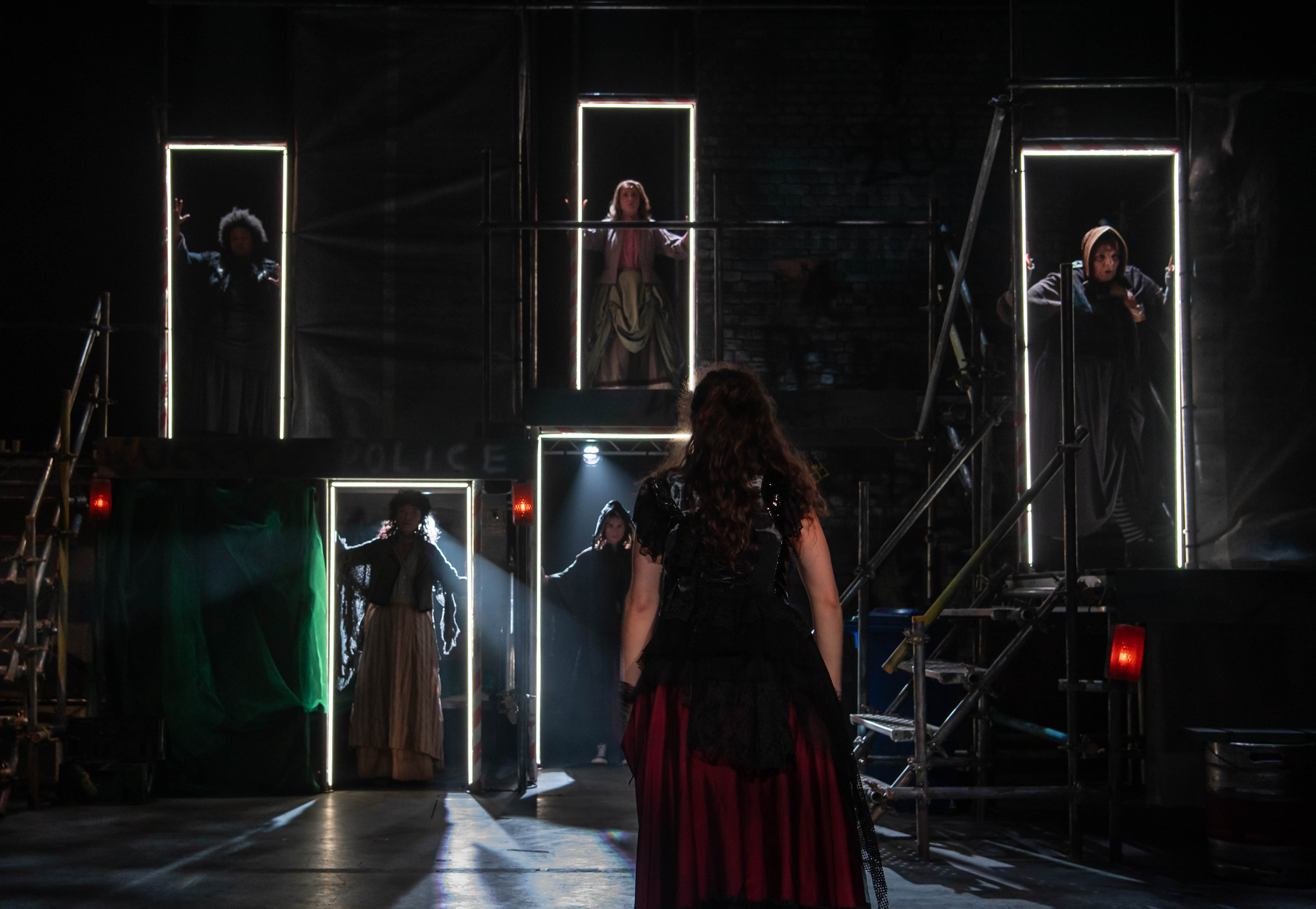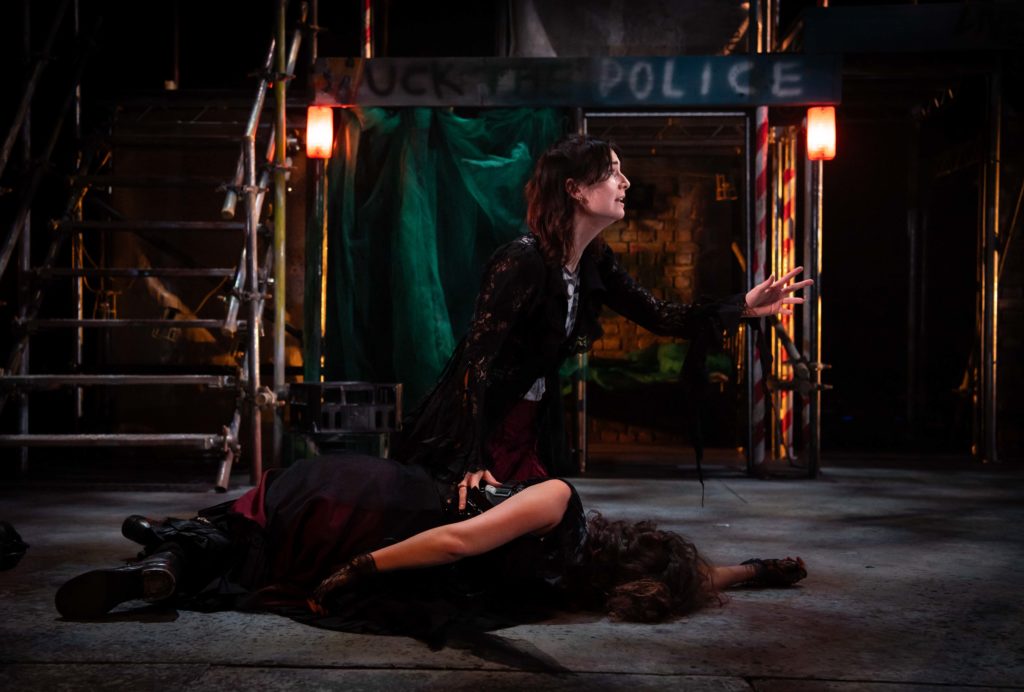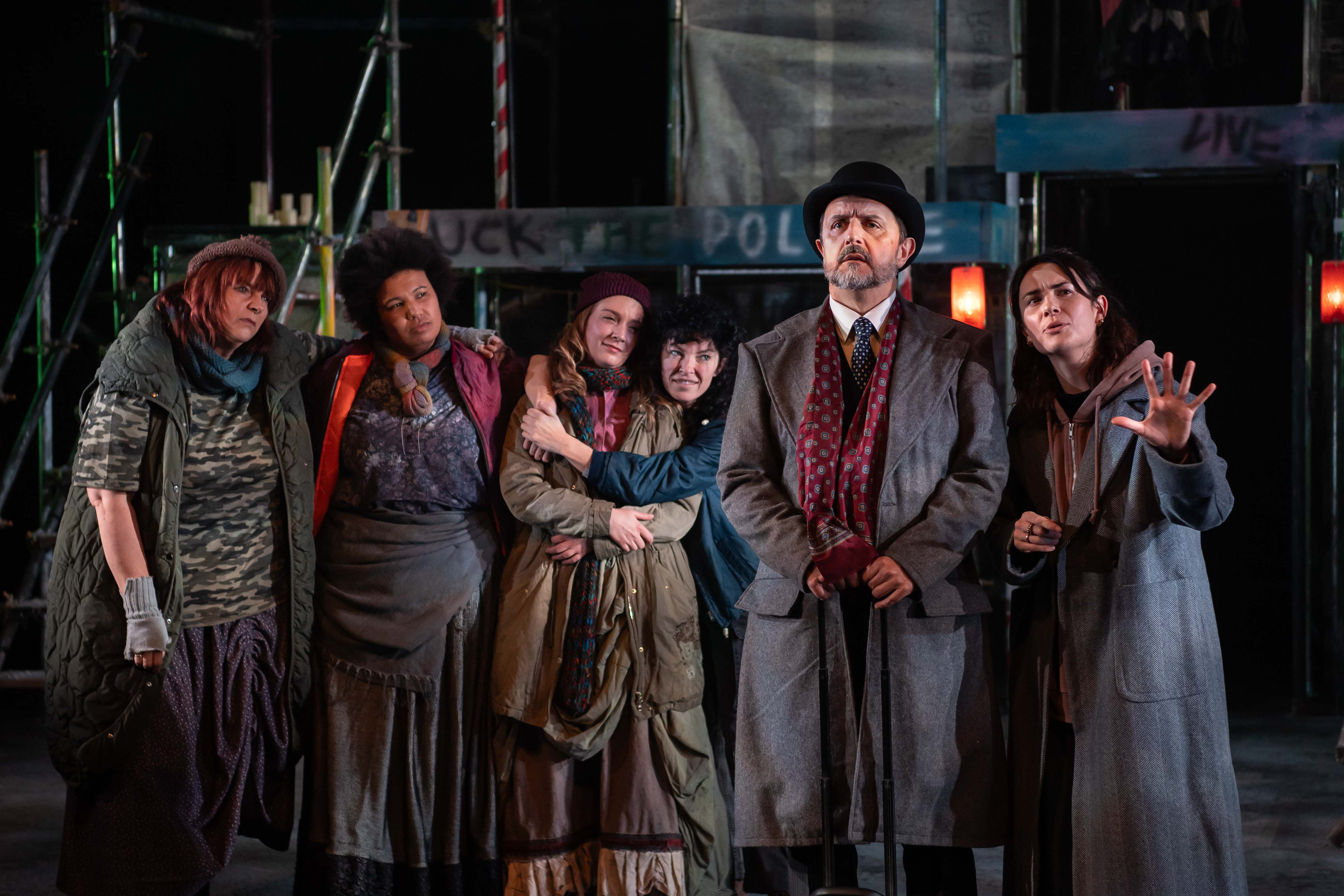Killing Jack – Queen’s Theatre Hornchurch
A world premiere in Hornchurch as Killing Jack takes the stage, reclaiming the stories of the five women whose lives have been overshadowed by their deaths in the autumn of 1888.
Content warning: contains references to (sexual) violence, death and grief.

Killing Jack
Whitechapel, 1888. Five murders take place from September to November. All women, the man responsible never discovered and brought to justice. How many of the six people involved can you name, and why do I suspect it’s only the nameless killer?
Killing Jack, on at the Queen’s Theatre Hornchurch, uses this most famous of cases to explore violence against women: how we talk about, and how we think about it. Why is it acceptable to be a “Ripperologist”, poring over old documents and gory photographs? Why do new, entirely unprovable theories about the killer’s identity still grab headlines? And are we so desensitised that we feel only the thrill of danger on a Ripper-themed tour on the streets of Whitechapel?
To dig into these questions, writer Sadie Hasler draws a contemporary parallel. Friends Maz (Hanna Khogali) and Jules (Caitlin Scott) head out on Halloween for Maz’s 25th birthday. But after the unthinkable occurs, Jules begins a quest not only to understand what happened to her closest friend, but to work out how to find meaning without her.

A Supernatural Tale In Time For Halloween
Given the theme, it may not be a surprise that five women help Jules in her quest: Annie (Rebecca Wheatley), Polly (Gemma Salter), Kate (Anne Odeke), Liz (Jessica Johnson) and Mary-Jane (also Khogali). How they arrived here isn’t exactly important (but some nice lighting from Stephen Pemble and set flourishes by Dora Schweitzer help to delineate shifts between realms). The important thing is why they arrived here, and what they will do with this second experience of life. How they will reclaim their stories.
Hasler makes an important and sobering point here. She suggests that the lurid interest in the way these five women died – Ripper Tours all over Whitechapel night after night – is a continual and continued violence against them. What’s more, we become complicit in the violence: from punters on Christopher’s (Charlie Buckland) tour to voyeuristic peepers at post-mortem photographs. It reminded me of the controversy around the planned creation of a Jack the Ripper Museum in Whitechapel a few years ago. That outrage bore fruit in the form of an East End Women’s Museum as a more appropriate counterpoint. The Jack the Ripper Museum is now open on Cable Street. The East End Women’s Museum, meanwhile, opens a physical site soon. Not a perfect outcome but a bit more balance. The five ghostly ladies (and one human) of Killing Jack hope for something similar.

Bringing Life Back To Liz, Polly, Mary-Jane, Annie And Kate
Do you know what I wasn’t expecting from Killing Jack? Songs. My fault, must read press releases and free sheets more carefully. Because I wasn’t expecting them I spent a bit of time thinking about their purpose and effect. This isn’t a musical per se, more a play with songs (by Paul Herbert). But the songs that are there are effective in breathing life back into our historic female characters, so to speak. Like the boards in the theatre foyer which list their biographical details but also their likes, personalities and what they overcame, the songs add back in the light and shade to what are, in the hands of most other authors, the vague outlines of characters.
The cast pour the same love into their songs and performances that is evident in the writing. Anne Odeke is a particular delight as Kate, especially in the scenes where these 19th century women find themselves navigating the modern world. The women double up minor roles, and Jessica Johnson is also excellent as Maz’s mum Tricia, a contemporary woman who has faced the same sort of unbearable burdens that are very much not relegated to the past.
Speaking of things that are not in the past, this brings me back to the central point here. We are so immune to violence against women that we don’t always stop to think about it like we should. My partner asked me to text him when I started heading home. Should that be such a common request? Probably not, but it’s sensible given some of the shocking things that still happen to women and girls. Killing Jack poses the question of whether it’s the women who need to change, or the men. An impossible one to answer on stage as in real life.
This, then, is powerful theatre. It’s also funny theatre, with whip-smart writing that references Shakespeare and more besides, plus throws in a Dickensian flourish which I greatly appreciated as a Christmas Carol aficionado. It’s theatre with a big heart, making the most difficult of subjects seem possible to confront. On until 11 November, find out more and book tickets here.
Salterton Arts Review’s rating: 4/5
Killing Jack on until 11 November 2023
Trending
If you see this after your page is loaded completely, leafletJS files are missing.

